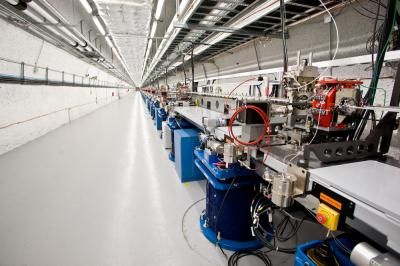The CEO of Wyatt Technology receives 2009 American Physical Society Prize for Industrial Application of Physics
Wyatt Technology Corporation announced that Dr. Philip J. Wyatt, the CEO and founder of Wyatt Technology Corporation has been awarded the 2009 Prize for Industrial Application of Physics by the American Physical Society (APS).
By leading the commercialization of laser light scattering, a technology of considerable practical importance for the chemical and pharmaceutical industries as well as numerous academic research programs, Dr. Wyatt has been selected to receive the prize sponsored by the General Motors Corporation and established by the Executive Board of the American Physical Society to acknowledge industrial applications of physics with an intention to publicize the value of physics for industrial development. Dr. Wyatt was the sole award recipient selected by the committee from five finalists of the 16 preliminary nominations. The prize will be presented at the APS March 2009 annual meeting in Pittsburgh, PA, at a special Ceremonial Session with the citation,
“For pioneering developments in the physics of the inverse scattering problem: new applications of laser light scattering and the successful sustained commercialization of new related analytical methods and instrumentation.”
Simply stated, the Inverse Scattering Problem concerns the problem of determining the characteristics of an object (its shape, internal constitution, etc.) from measurement of light scattered from it into a broad range of scattering angles. Dr. Wyatt began his investigations of the practical applications of the inverse scattering problem in 1967 with studies of means to differentiate bacterial species from one another. Together with his colleagues, most importantly Dr. David T. Phillips, he modified a traditional light scattering photometer to incorporate a laser light source. This instrument prototype was then used to measure a variety of physical and structural properties of bacterial cells in solution. These early studies included the effects of temperature, as well as antimicrobials on such cells within a few minutes. This instrumentation was then further extended to permit such scattering measurements to be made and interpreted from scattering by single particles. These included bacteria, spores, photochemical smog particles, and fly ash particles. Early laser-based commercial instruments were then developed and sold starting in 1971 by the firm Science Spectrum, which he founded in 1968. There was very little commercial interest in these products during their introductory years, and the company finally closed in 1981.
Dr. Wyatt founded Wyatt Technology in 1982 to develop, manufacture, and market a new class of laser-based analytical instruments. These instruments incorporated the concept of making simultaneous measurements of light scattered from solutions, and even single particles, into a broad range of scattering angles. Such measurements are referred to generally by the term multi-angle light scattering or, simply, MALS. The instruments are mainly used to develop new polymers, nanoparticles, and pharmaceuticals. By the turn of the century, the product line had expanded to include refractometers and devices to fractionate liquid dispersed samples. The application of Wyatt Technology’s multi-angle light scattering photometers in pharmaceutical industry demonstrates the potential of such instruments in the development of new biologicals.
Most read news
Topics
Organizations
Other news from the department people

Get the analytics and lab tech industry in your inbox
By submitting this form you agree that LUMITOS AG will send you the newsletter(s) selected above by email. Your data will not be passed on to third parties. Your data will be stored and processed in accordance with our data protection regulations. LUMITOS may contact you by email for the purpose of advertising or market and opinion surveys. You can revoke your consent at any time without giving reasons to LUMITOS AG, Ernst-Augustin-Str. 2, 12489 Berlin, Germany or by e-mail at revoke@lumitos.com with effect for the future. In addition, each email contains a link to unsubscribe from the corresponding newsletter.


























































